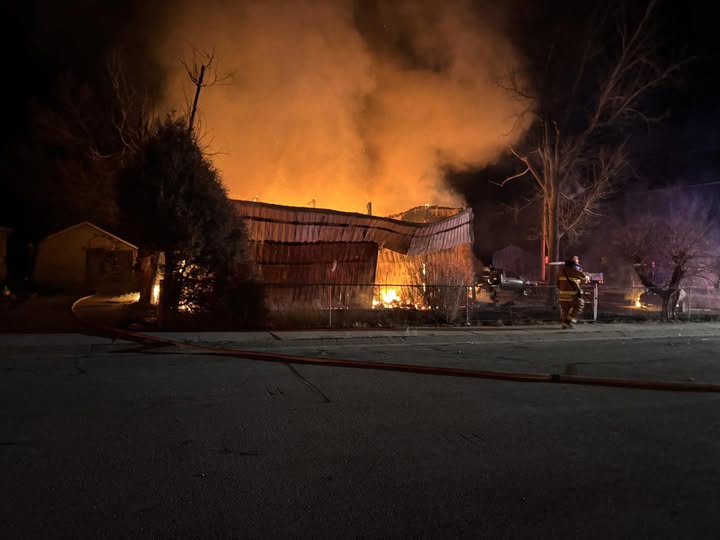SIOUX FALLS, S.D. (AP) — South Dakota Gov. Kristi Noem described the U.S. border with Mexico as a “war zone” last year when she sent dozens of state National Guard troops there, saying they’d be on the front lines of stopping drug smugglers and human traffickers.
But records from the Guard show that in their two-month deployment, the South Dakota troops didn’t seize any drugs. On a handful of occasions, they suspected people of scouting for lapses in their patrols, but mission logs don’t contain any confirmed encounters with “transnational criminals.” And a presentation from the deployment noted that Mexican cartels were assessed to be a “moderate threat” but were “unlikely” to target U.S. forces.
Some days, the records show, the troops had little if anything to do.
“Very slow day. No encounters. It has been 5 days since last surrender,” wrote one Guard member whose name was redacted from a situation report created as the deployment neared its end in September 2021.
For Noem, who is up for reelection Tuesday amid speculation she could be a 2024 White House contender, the deployment was an eye-catching jump into a political fight more than 1,000 miles (1,609 kilometers) from her state. Noem justified the deployment — and a widely criticized private donation to fund it — as a state emergency. Dangerous drugs, she said, made their way to South Dakota after coming over the southern border.
But the documents obtained by Citizens for Responsibility and Ethics in Washington through an open records request cast doubt on whether the deployment was effective at stopping drug trafficking, even as Noem claimed that Guard members “directly assisted” in stopping it.
Most drugs don’t come through unwatched expanses of the border or the Rio Grande where the Guard members were stationed, said Victor Manjarrez, a former Border Patrol senior officer who is now a professor of criminal justice at the University of Texas at El Paso. They are smuggled into the United States at established border checkpoints, he said.
South Dakota Guard members were stationed at observation posts where they parked Humvees or other military vehicles alongside the Rio Grande. They watched for groups of migrants to report to Border Control, which would then take them into custody. On several occasions, they reported groups of hundreds of people migrating, and at one point, a Guard member performed CPR on a child who had drowned.
“Like any operation there are going to be busy days and some slow days, that is expected in all operations,” Marshall Michels, a spokesman for the South Dakota Department of the Military, said in an email response to questions on the records from AP.
Noem last year joined with seven other Republican governors to harden the border through Texas’s Operation Lone Star. The state-backed mission sought to discourage migrants by making arrests under Texas laws.
The mission gave Republicans occasion to deride President Joe Biden’s border policies, but the operation has not curbed the number of people crossing the border. It has also faced criticism for being a rushed mission that gave members little to do while potentially running afoul of federal law.
Noem’s decision to send 48 Guard members was met with particularly harsh criticism because she covered most of its cost with a $1 million donation from a Tennessee billionaire who has often donated to Republicans. Top brass from the National Guard Bureau and an aide to South Dakota U.S. Sen. John Thune, a fellow Republican, questioned what legal authority the state had to accept a donation to fund the deployment, the recently released emails show.
CREW (Citizens for Responsibility and Ethics in Washington) sued the South Dakota Guard and the U.S. Army after they refused a Freedom of Information Act request for records on the deployment and communication between the National Guard, the governor’s office and the Department of Defense. Under that legal pressure, the agencies turned over the documents, which CREW shared with The Associated Press.
Noah Bookbinder, CREW’s president, said they wanted to bring transparency to a donation that he called “a particularly craven example of how money can drive not just politics but how governments operate and how military forces can be used.”
Congress later banned such private donations for Guard deployments.
Noem’s administration has insisted that the National Guard, with its military training, was best-suited to tackle what she called “a national security crisis.”
“It literally is a war zone,” she told reporters this July.
Noem’s office referred questions on the deployment to a statement last year when she called Biden’s border policy an “utter disaster” that facilitated illegal border crossings and said that Mexican cartels were using the surge in migrants as a “distraction for their criminal activities.”












